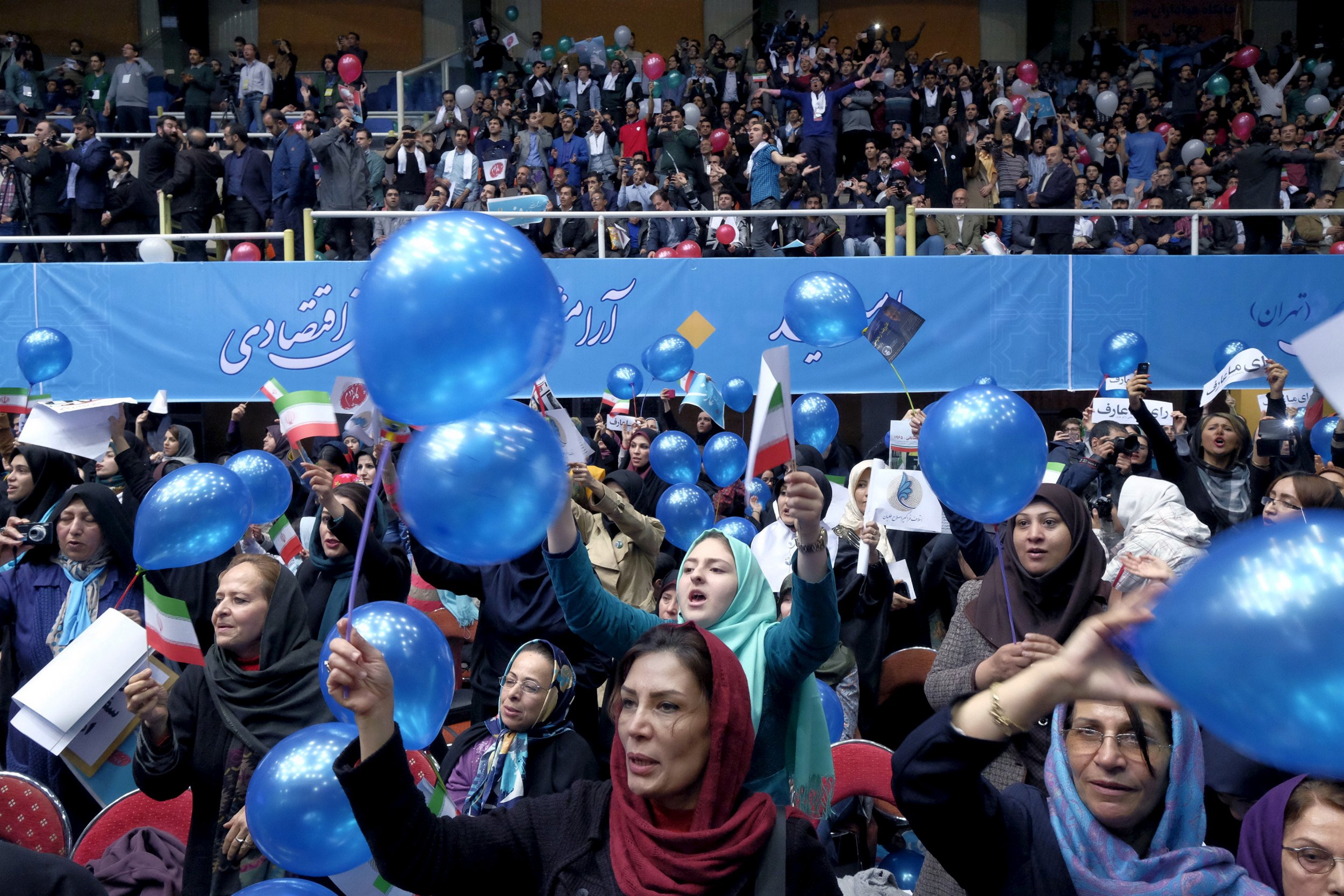
On Friday, Iranians will take to the polls to decide who makes up the country's majlis, or parliament, and the Assembly of Experts. These elections will see the Islamic Republic vote for the first time since it sealed an historic nuclear agreement with six world powers in July 2015, in order to lift a crippling international sanctions regime on the Iranian economy. But why are these elections important?
The Iranian parliament matters
The parliament is Iran's main legislative body and decides what bills to pass into law and cabinet appointments. Approximately 6,000 candidates are vying for 290 seats. In Tehran alone, 1,000 candidates are jostling for 30 seats. The parliament consists of mostly conservative lawmakers but, while a major shift is not predicted, a more moderate parliament could change the direction of domestic and foreign policy in a post-nuclear deal Iran.
Parliament influences decision-making by defining the parameters by which the administration of Iranian President Hassan Rouhani can maneuver, says Nazanin Soroush, MENA analyst at defense consultancy IHS Janes.
"Although the Guardian Council [an influential 12-member council that interprets the Iranian constitution, supervises elections and approves candidates] has to approve all legislation before it becomes law, a parliament that is cooperative towards the Rowhani administration will strengthen the popular mandate for the government's policies, making it harder for the council to repeatedly and overtly obstruct them," she says.
The Assembly of Experts could decide the next Supreme Leader
This organ is Iran's highest clerical body. More than 800 people applied to stand for the 88-member assembly, with just 161 approved. No women were permitted to stand for this body.
It has the authority to remove the Supreme Leader, a highly unlikely event due to Ayatollah Ali Khamenei's influence. Yet, due to Khamenei suffering from ill health and his age (76), there is a possibility that this body, which serves for eight years, will decide the next Supreme Leader of Iran.
"The idea is that if the moderates can build a large or majority bloc and marginalize hardline conservatives, they will be in a strong position to choose the next supreme leader who could change the direction of the country," says Farzan Sabet, Nuclear Security Fellow at the Center for International Security and Cooperation at Stanford University and managing editor of IranPolitik, a website focused on Iranian politics.
Elite factions in Iran will also informally play a significant role in the succession process by influencing the member clerics of the Assembly, says Soroush. "While the Assembly of Experts is—probably deliberately—an opaque organization, the nature of alliances formed by the member clerics will likely play a decisive role in the succession process."
The election pits moderates against hardliners
Despite some 6,000 candidates running to enter the Iranian parliament, more than 12,000 people registered to stand as candidates but more than half were disqualified from doing so for a variety of reasons, such as a lack of education or commitment to the Islamic Republic. According to political risk consultancy Maplecroft, the Guardian Council rejected 45 percent of the parliamentary candidates and 74 percent of the Assembly of Experts candidates in this election. Such stringent vetting means that the choice for Iranians becomes more limited when it comes to the vote.
Polling day will see different sections of Iranian society come together to decide on their candidates, those who favor the more moderate Rouhani or those who back the conservative bloc in the country that hopes to use this election to hamper Rouhani's hopes of reelection in 2017. This "narrow band" that the Iranian political system offers ordinary citizens can potentially make a real difference to their daily lives, says Sabet.
"Both moderates and conservatives will be overseeing the election, the former through Rouhani's Interior Ministry and the latter through the Guardian Council, which reduces the chance for outright systematic fraud in the moderate versus conservative competition," he adds.
They have implications for President Hassan Rouhani's re-election in 2017
As well as affecting the everyday lives of your average Iranian, the vote could also decide the fate of Rouhani's reelection campaign next year. While the parliament will shape how Rouhani's future policies are received by the wider public, this vote will serve as a barometer for current public opinion. "The Iranians' turnout and their candidate choice will indicate how they feel about Rouhani's performance and the direction of the country overall," says Sabet.
The results, in favor of Rouhani's moderate bloc or against it, will also decide how far he can go in implementing economic reforms and expanding social and political freedoms. "The primary impact on the Rouhani administration is on the domestic front," says Soroush. "A majority pro-Rouhani parliament will likely improve his ability to proceed with some modest economic reforms intended to attract substantial foreign investment, while a split or hard-line conservative majority parliament will likely delay or outright obstruct Rouhani's efforts."
Uncommon Knowledge
Newsweek is committed to challenging conventional wisdom and finding connections in the search for common ground.
Newsweek is committed to challenging conventional wisdom and finding connections in the search for common ground.
About the writer
Jack is International Security and Terrorism Correspondent for Newsweek.
Email: j.moore@newsweek.com
Encrypted email: jfxm@protonmail.com
Available on Whatsapp, Signal, Wickr, Telegram, Viber.
Twitter: @JFXM
Instagram: Read more
To read how Newsweek uses AI as a newsroom tool, Click here.








